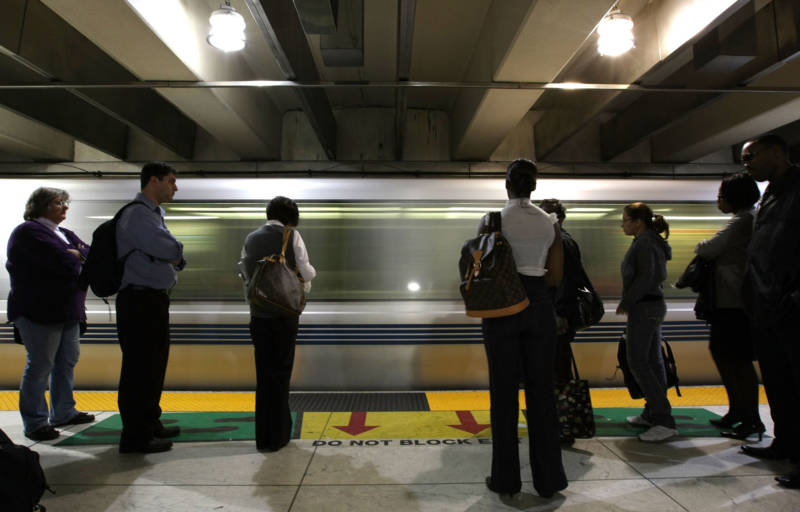An experimental BART program is trying to take the edge off the morning commute and make it a little less like a daily attempt to break the Guinness World Record for the biggest crowd of disgruntled commuters stuffed into a train car.
On Tuesday, the transit agency launched BART Perks, a program designed to reduce crowding by offering riders cash to take trains during nonpeak hours.
BART Perks works like a game where the goal is to collect points. Riders who join the program using their Clipper Card will earn a point for every mile they ride BART, no matter the time of day. Commuters get up to six times as many points for starting their trips during two bonus hours, 6:30-7:30 a.m. and 8:30-9:30 a.m.
Points can either be cashed in using PayPal at a rate of $1 per 1,000 points or used to play an online game called Spin to Win, which offers the chance for additional points or cash prizes of up to $100.
The program is a pilot funded for six months. BART is hoping to enroll 10,000 people, particularly transbay commuters, a group the agency says has increased by 43 percent since 2010.

